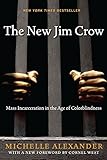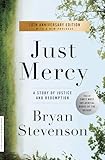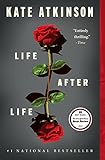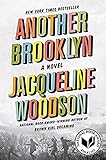It’s been a somewhat slow, muddy-brained reading year for me—likely due to the intense distractions of both ugly news media and challenging life happenings. But thankfully and nonetheless, some wonderful books got read (intentional passive voice, enacting the struggle here via syntax). In fact, since I needed a strategy this year—to battle the muddy distractedness—a handful of books even got read twice.
 Two unexpected favorites were Henry Miller’s Tropic of Cancer and Sylvia Plath’s The Bell Jar, both of which I began reading as if venturing into a musty basement, pinching my nose and bracing myself for dead rodents. In other words, I went in with all the baggage of a latecomer (to the hype), primed to find these seminal autobiographical novels both overrated and so socio-politically regressive that I would be unable to read them without a screen of irony. But in fact, nothing, not even cultural evolution, can stamp out beautiful writing; and one thing I’ve been most drawn to in fiction these days is a palpable sense of an author’s skin in the game. With both Plath and Miller, one cannot deny the precariously and deeply lived lives incarnated in these pages. In addition, Tropic sent me off to read Anaïs Nin’s gorgeous diaries (the years when she and Miller were intimates) which then sent me back to re-read Tropic.
Two unexpected favorites were Henry Miller’s Tropic of Cancer and Sylvia Plath’s The Bell Jar, both of which I began reading as if venturing into a musty basement, pinching my nose and bracing myself for dead rodents. In other words, I went in with all the baggage of a latecomer (to the hype), primed to find these seminal autobiographical novels both overrated and so socio-politically regressive that I would be unable to read them without a screen of irony. But in fact, nothing, not even cultural evolution, can stamp out beautiful writing; and one thing I’ve been most drawn to in fiction these days is a palpable sense of an author’s skin in the game. With both Plath and Miller, one cannot deny the precariously and deeply lived lives incarnated in these pages. In addition, Tropic sent me off to read Anaïs Nin’s gorgeous diaries (the years when she and Miller were intimates) which then sent me back to re-read Tropic.


 Two other so-called classics I loved this year were The French Lieutenant’s Woman—John Fowles’s wonderful narrator, breaking the fourth wall and recounting the story of Victorian sexuality as much as that of Charles Smithson and Sarah Woodruff—and Lady Chatterley’s Lover. Of this pair, it was the D.H. Lawrence that got read twice—once in print, once via audio (you’ve just got to hear Mellors’s Derbyshire dialect, as read by Emilia Fox, in your ear). Next up, to square the circle, I’ll be tracking down Anaïs Nin’s D.H. Lawrence: An Unprofessional Study.
Two other so-called classics I loved this year were The French Lieutenant’s Woman—John Fowles’s wonderful narrator, breaking the fourth wall and recounting the story of Victorian sexuality as much as that of Charles Smithson and Sarah Woodruff—and Lady Chatterley’s Lover. Of this pair, it was the D.H. Lawrence that got read twice—once in print, once via audio (you’ve just got to hear Mellors’s Derbyshire dialect, as read by Emilia Fox, in your ear). Next up, to square the circle, I’ll be tracking down Anaïs Nin’s D.H. Lawrence: An Unprofessional Study.

 I am deeply grateful for Michelle Alexander’s The New Jim Crow, which I felt was written for “people like me,” who are, unfortunately, legion: we know this-and-that about the vast injustices of mass incarceration but needed Alexander to write the book that would coherently map out the cause and effect and thus activate us more concretely (I hope to have more to say/write about this next year). Bryan Stevenson’s Just Mercy ditto—a book that, in addition to educating you, will do that impossible thing: remind you that good, smart people set themselves to the hardest uphill life work imaginable and do this work regardless—regardless, that is, of all the shit that paralyzes people like me.
I am deeply grateful for Michelle Alexander’s The New Jim Crow, which I felt was written for “people like me,” who are, unfortunately, legion: we know this-and-that about the vast injustices of mass incarceration but needed Alexander to write the book that would coherently map out the cause and effect and thus activate us more concretely (I hope to have more to say/write about this next year). Bryan Stevenson’s Just Mercy ditto—a book that, in addition to educating you, will do that impossible thing: remind you that good, smart people set themselves to the hardest uphill life work imaginable and do this work regardless—regardless, that is, of all the shit that paralyzes people like me.
Kate Atkinson’s Life After Life made such an impression I can hardly talk about it. This one, too, I began rereading the minute I read the last word. It’s puzzle-piece, helix-like form left me in awe, and I dare say it is the most truly feminist novel I have read in a long time. It might take me a while to figure out what I mean by that, but I’m comfortable putting it out there.

 Jacqueline Woodson’s Another Brooklyn deserves every ounce of praise and honor it’s received. I’ve been telling people that if you liked the Elena Ferrante books, you’ll love Another Brooklyn.
Jacqueline Woodson’s Another Brooklyn deserves every ounce of praise and honor it’s received. I’ve been telling people that if you liked the Elena Ferrante books, you’ll love Another Brooklyn.
Oh, and did I mention I was a judge for the Center for Fiction’s first novel award? This meant reading cartons-full of debut novels this summer—which was a great privilege, and also rather brain-breaking for this slow reader. You can see the shortlist here, but I’d like to shout-out a few that did not make the list: Deepak Unnikrishnan’s Temporary People (a tour-de-force of raw originality), Matthew Klam’s Who Is Rich? (characters you will love to hate and maybe even just love), and Gabriel Tallent’s My Absolute Darling (devastating, unflinching; a young-writer-to-watch).
More from A Year in Reading 2017
Don’t miss: A Year in Reading 2016, 2015, 2014, 2013, 2012, 2011, 2010, 2009, 2008, 2007, 2006, 2005










